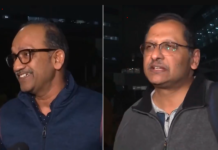In a landmark ruling, Supreme Court has legalised passive euthanasia stating that humans have the “right to die with dignity”. A 5-judge Constitution bench headed by Chief Justice of India Dipak Mishra has given a nod to patients for withdrawal of medical support if they slip into an irreversible coma.
While giving out the judgment, the CJI revealed that the bench had 4 different opinions but unanimously all the judges were in favor of permitting the “living will” to a person. The court stated that a person cannot be allowed to suffer in a comatose state is he or she doesn’t wish to live. The apex court said that the directions and guidelines laid down by the court shall remain in force until legislation is brought on the issue.
A living will is a document through which a patient can give his/her explicit instructions in advance about the medical treatment to be administered for the time when he/she is unable to give an informed consent. The term passive euthanasia means withdrawal of medical treatment with a deliberate attempt of causing a fast death of a terminally ill patient.

The SC ruling came out after a petition was filed by an NGO named ‘Common Cause’ that approached the court regarding clear directions for identifying the “living will” of a person. The NGO demanded that if a person is afflicted with a terminal disease and has reached an irreversible point, he/she must be given the right to refuse being put on life support.
The Centre told the court that government had ‘in principle’ decided to decriminalize the suicide attempt. Currently, a suicide attempt is a punishable offense by up to 1-year jail term under Sec 309 of the IPC.












